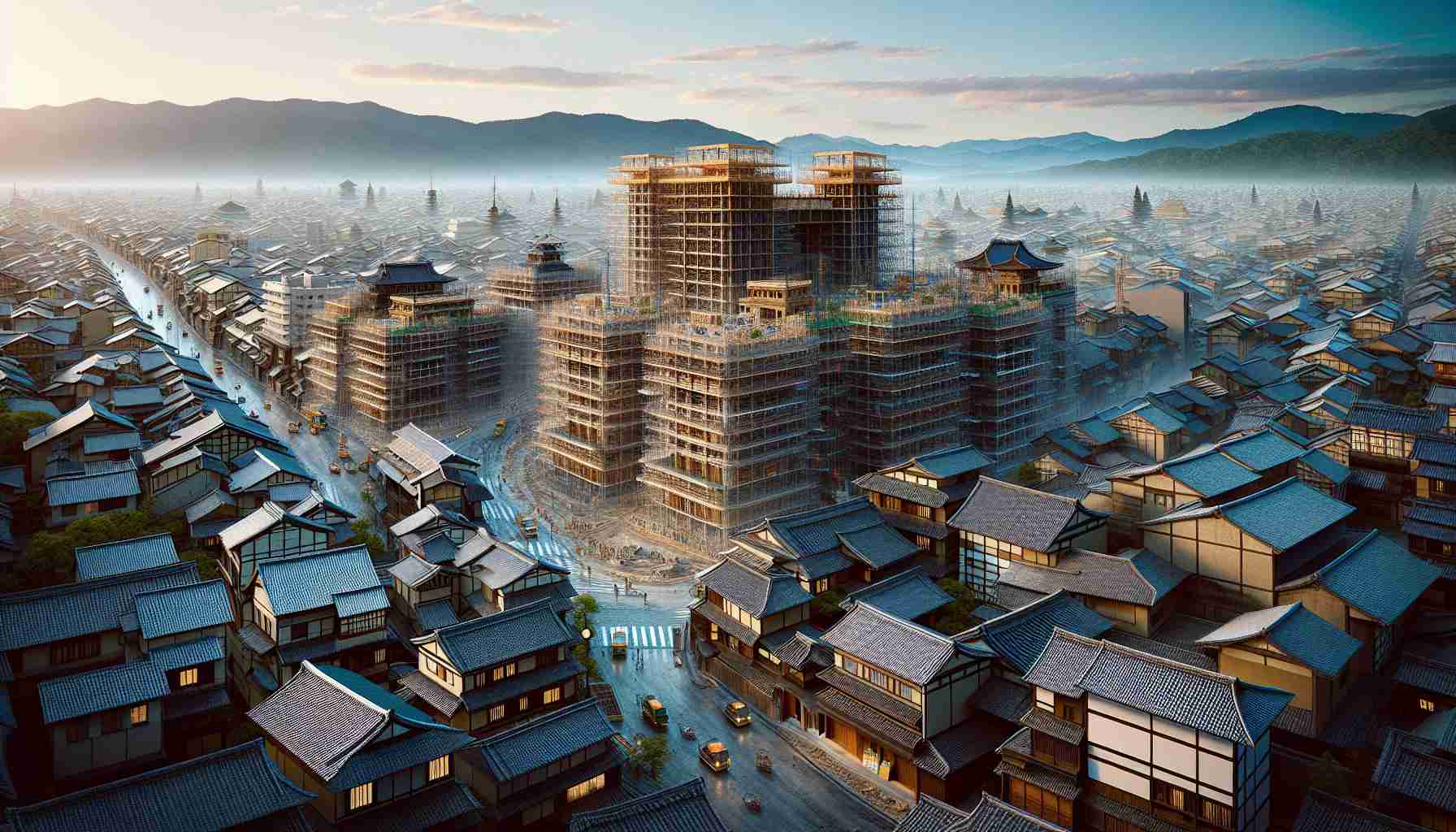Kyoto Transforms Ahead of Osaka-Kansai Expo 2025
In anticipation of the Osaka-Kansai Expo 2025, Kyoto is experiencing a surge in hotel openings, particularly in the Shimogyo Ward. This trend is part of a broader strategy to enhance the region’s tourism infrastructure. Foreign hospitality companies are leading the charge, revitalizing existing establishments and introducing modern amenities to attract visitors from around the globe.
The city’s commitment to accommodating the influx of tourists for the Expo is evident in the rapid development of new hotels, which is expected to boost local economies and enhance Kyoto’s appeal as a travel destination. With its rich cultural heritage and stunning landscapes, Kyoto is poised to become a key player in Japan’s tourism landscape come 2025.
The recent hotel launches are designed to cater to a diverse range of travelers, offering everything from luxury accommodations to budget-friendly options. This variety ensures that all visitors, whether they are families on vacation or business travelers, will find suitable lodging.
As Kyoto continues to innovate and expand its hospitality options, its status as a must-visit destination for both domestic and international tourists is further solidified. Travelers can look forward to an enhanced experience in this historic city, which blends tradition with modernity seamlessly.
Kyoto: A Tourist Haven Set to Shine at Osaka-Kansai Expo 2025
The Future of Hospitality in Kyoto
As Kyoto gears up to welcome millions of visitors for the Osaka-Kansai Expo 2025, the city’s hospitality sector is undergoing a significant transformation. With a strategic focus on sustainability and diversity, Kyoto is not just expanding its hotel offerings but is redefining its approach to tourism.
Key Trends in Hotel Development
1. Sustainable Practices: New hotel projects are increasingly integrating eco-friendly designs and practices. This includes energy-efficient systems, sustainable sourcing of materials, and zero-waste policies. The emphasis on green technologies reflects a global trend towards more responsible travel options.
2. Cultural Integration: Hotels are increasingly embedding local culture into their designs and services. This involves using traditional Kyoto architecture styles, offering local cuisine, and providing cultural experiences such as tea ceremonies or craft workshops, thus enriching the travel experience.
3. Tech Innovations: Many new hotels are incorporating advanced technologies, such as mobile check-in/out processes, smart room controls, and AI concierge services, catering to the tech-savvy traveler.
Diverse Accommodation Options
The recent influx of hotel openings in Kyoto aims to cater to a wide array of visitors.
– Luxury Hotels: High-end establishments are offering premium services, including spas, personalized butler services, and fine dining options featuring local gastronomy.
– Mid-range and Budget Hotels: A growing number of more affordable hotels and hostels are emerging, focusing on comfort and convenience without sacrificing quality. These options make Kyoto accessible to a broader audience.
Economic Impact
The expansion of the hospitality industry is expected to have a robust economic impact on Kyoto. Local businesses, from restaurants to shops, stand to benefit from the increased foot traffic generated by Expo visitors. This influx is anticipated to help revitalize areas of the city while providing jobs and promoting local culture.
Features and Specifications of New Hotels
Some notable features of new accommodations include:
– Modern Amenities: High-speed internet, fitness centers, and business lounges cater to both leisure and business travelers.
– Unique Designs: Architects are creating eye-catching designs that blend modern aesthetics with traditional Japanese elements.
– Accessibility: Many of the new hotels are equipped with features that ensure accessibility for all guests, a much-needed addition as inclusivity becomes a priority in travel.
Limitations and Challenges
Despite the positive outlook, Kyoto faces several challenges:
– Overtourism: The potential for overcrowding during the Expo could strain resources and impact the serene experience that Kyoto is known for.
– Preservation of Heritage: Balancing modernization with the preservation of cultural and historical sites remains a priority that city planners must address carefully.
Pricing Insights
Hotel prices in Kyoto are projected to vary greatly, with luxury options starting at around $300 per night, while budget accommodations may begin at approximately $50. This pricing strategy aims to ensure affordability while accommodating diverse income levels among tourists.
Conclusion: An Exciting Time for Travel
As Kyoto prepares for Expo 2025, the city is not solely focused on increasing hotel capacity but is also committed to enhancing the overall visitor experience through sustainability, cultural authenticity, and modern convenience. With these developments, Kyoto is on track to solidify its status as a premier travel destination in Japan.
For more updates and information about Kyoto and its offerings, visit Japan Travel.
